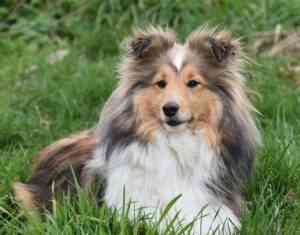GoFundMe Labgenvet!
To ensure the continuity and the unbiased content of the Labgenvet web site and to keep the site free, please make a donation to the GoFundMe Labgenvet campaign to defray hosting fees for the site!
Frequencies of Genetic Disease Mutations by Dog Breed
A knowledge and understanding of mutation frequencies for genetic diseases found within and between dog breeds is a prerequisite for conscientious breeders and veterinarians wishing to make sustainable breeding and informed medical decisions.
Unfortunately, information on mutation frequency is limited and not always readily accessible within the public domain. This page, “Frequencies of Genetic Disease Mutations by Dog Breed” is an attempt to address this issue.
Three sets of mutation frequency data for dogs are presented, compiled by dog breed and by genetic disease. These data sets are as follows:
Labgenvet data: In 12 years of operation, the Laboratory of Veterinary Genetics (Labgenvet) was able to perform over 7,000 tests for dog genetic diseases and traits, with samples derived almost exclusively from purebred animals.
Two thirds of the samples processed were submitted by dog breeders while one third of the samples came from veterinary clinics.
Samples represented dogs mainly (but not exclusively) from Quebec and Eastern Canada.
Samples were processed for the specific disease mutation requested using techniques of PCR amplification and DNA sequencing. The frequency results presented are inclusive to June 1, 2021.
Data from Donner et al. (2018): This published data set represents 18,000 samples from purebred dogs. Each sample was profiled for 152 known variant mutations associated with canine genetic diseases. Testing was by hybridization of sample DNA on a custom designed beadchip microarray. Samples represented both European and North American dogs; results are inclusive to 2018.
Data from Donner et al. (2023): This published data set represents more than 242,000 purebred dogs from more than 150 countries, profiled for 250 known genetic disease-associated DNA variants. Testing was again by hybridization of sample DNA using microarray (gene chip) technologies.
For all data sets, the frequencies of carrier animals (M/N) are presented by dog breed, by disease and by number of samples processed. For the Labgenvet and Donner et al. (2018) data, carrier animal (M/N) frequencies are presented as measured or reported. For the Donner et al. (2023) data, carrier animal (M/N) frequencies are presented as calculated from reported alternative (mutant) allele (M) frequencies using the Hardy-Weinberg formula. Diseases are listed in order of decreasing carrier frequencies with links provided. For autosomal recessive genetic diseases, carrier frequencies of 2% or greater are highlighted in YELLOW, to indicate diseases of increased relevance for the dog breed in question. For dominant genetic diseases, all carrier frequencies are highlighted in RED. This information can also be accessed from the Dog Genetic Disease Search page by performing a Search by breed.
DOG BREEDS:
American Staffordshire Terrier
Dachshund, Miniature Longhaired
Dachshund, Miniature Shorthaired
German Hunting Terrier (Jagdterrier)
Nova Scotia Duck Tolling Retriever



